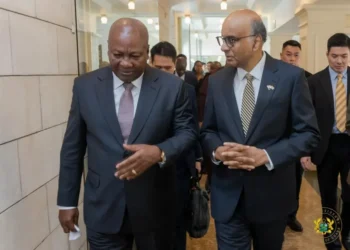The government has introduced far-reaching Value Added Tax (VAT) reforms that include the complete abolition of the COVID-19 Health Recovery Levy and a reduction of the effective VAT rate from 21.9% to 20%, marking one of the most significant tax adjustments in recent years.
Finance Minister Dr Cassiel Ato Baah Forson, presenting the 2026 Budget Statement to Parliament on Thursday, said the reforms span five major areas and are expected to save households and businesses an estimated GHS 6 billion.
Follow The Ghanaian Standard channel on WhatsApp for the latest news stories from Ghana.
The measures include the removal of the decoupling of the GETFund and National Health Insurance Levy (NHIL) from the VAT base, allowing both levies to qualify for input tax deductions. Government is also eliminating VAT on mineral reconnaissance and prospecting, raising the VAT registration threshold from GHS 200,000 to GHS 750,000, and extending VAT zero-rating on locally produced textiles through 2028.
Dr Forson explained that months of analysis and broad stakeholder engagement informed the design of what he described as a “modernised VAT system fit for Ghana‘s economic transformation.” He said the adjustment to the GETFund and NHIL structure alone would reduce the cost of doing business by five per cent, boosting expansion and job creation.
Touching on sector-specific impacts, he noted that scrapping VAT on mineral exploration would revive investor confidence, spur new greenfield activity and promote responsible mining practices, reducing environmental degradation. The reform, he added, also aims to reverse years of declining investment in mineral exploration.
The domestic textile sector is also set to benefit, with government pledging targeted fiscal support to improve capacity and growth.
Dr Forson said government would introduce electronic and digital tools to overhaul VAT administration, stressing that the goal extended beyond policy changes to strengthening compliance and easing business operations.
He emphasised that distortions in the current VAT system had increased burdens and weakened compliance, and that the new framework would support both fiscal stability and business growth.
“The storm has passed. The foundation is firm. The horizon is bright,” he said, adding that the reforms reflect a renewed national drive under President Mahama’s leadership to build a fairer, stronger and more resilient economy.















